UK health crisis: Welsh junior doctors to go on strike amid ‘grueling conditions’
Thousands of junior doctors in Wales will go on a three-day strike in January due to an unresolved pay dispute with the government, amid “crippling staffing shortages” and “worsening patient care.”
In August, the Welsh junior doctors committee decided to ballot members after being offered a below-inflation pay offer of 5 percent.
Of the doctors eligible to vote in Wales, 65% responded, and 98% of those supported the strike.
The 72-hour full walkout, which will take place on January 15, could see more than 3,000 doctors withdraw their labor from hospitals and GP surgeries across Wales.
The Welsh government called the decision “disappointing” and said it could not meet pay demands without more UK government money.
In a joint statement, Dr Oba Babs-Osibodu and Dr Peter Fahey, co-chairs of BMA Cymru Wales’ junior doctors' committee, said the ballot results showed the “strength of feeling.”
“We are frustrated, in despair and angry… we can’t and we won’t take any further erosion of our pay,” they said.
“Our members have been forced to take this difficult decision because junior doctors in Wales have experienced a pay cut of 29.6 percent in real terms over the last 15 years.”
They said the decision to strike had “not been made lightly” and that members were not looking for a pay rise, but asking for pay to be restored in line with inflation.
“Pay needs to be fair and competitive with other healthcare systems across the world to retain and recruit doctors and NHS staff to provide much-needed care,” they added.
“On top of this junior doctors are experiencing worsening conditions and so doctors are now looking to leave Wales to develop their careers for better pay and a better quality of life elsewhere.
“Doctors are already voting with their feet and leaving the NHS and we are in a vicious cycle of crippling staffing shortages and worsening patient care.”
Dr Babs-Osibodu, a radiology registrar based in Newport who graduated from medical school in 2018, said “Doctors are already working in pretty grueling conditions, working nights, working weekends, missing birthdays, Christmases.
“They’ve had to make multiple sacrifices, moving up and down the country, and on top of that they're struggling financially,” Osibodu added.
Junior doctors in other parts of England are scheduled to go on strike from 20-23 December and 3-9 January, following unsuccessful negotiations that lasted for five weeks.
In the upcoming year, the BMA plans to conduct a ballot among its members in Northern Ireland, potentially leading to a 24-hour strike in March.
Junior doctors in Scotland have agreed to an enhanced offer of a 12.4 percent salary increase for the year 2023/2024, which will be applied from April onwards.
In September, thousands of junior doctors in the UK launched their third round of strikes, signaling the government’s inability to put an end to the long-running dispute over payments amid soaring inflation.
Strikes by nurses, ambulance workers, and junior doctors, which began with the first walkout in December last year, have led to the cancellation of more than 900,000 operations and procedures by the NHS in England.
VIDEO | Austrians arrested at Gaza protest in Vienna
10 killed in bus crash in western Iran
5 Israeli forces killed as Palestinian fighters face up to regime’s war machine
VIDEO | An insider's view of the country: Persian Tahini, Royan in Mazandaran
VIDEO | Israeli settler killed during strike against Tel Aviv; fresh aggression targets Yemen’s capital
VIDEO | Yemen’s missile strikes on Tel Aviv
Iran to open 6 GW of new power capacity by next summer
VIDEO | South Korean rallies set the stage for battle over Yoon's impeachment


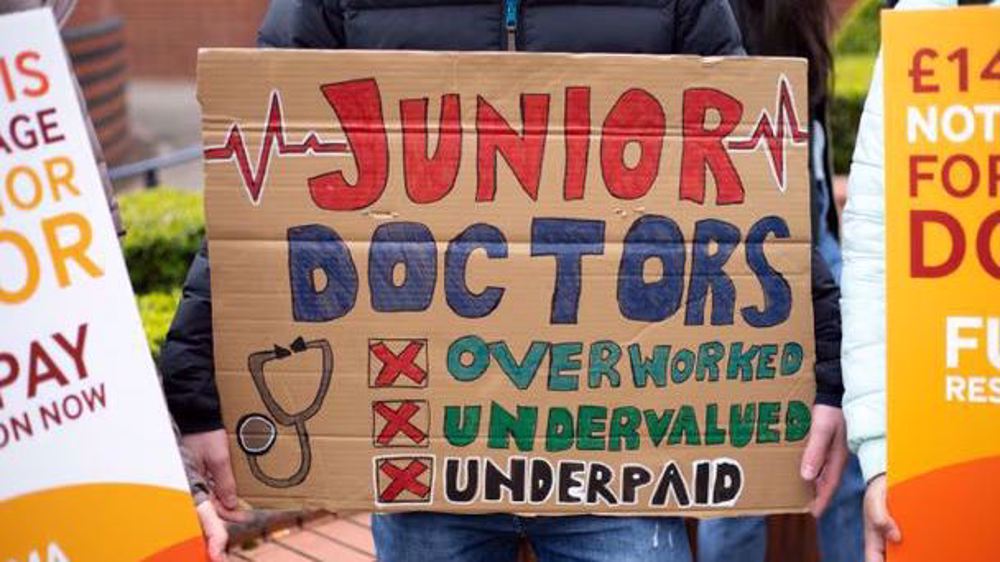
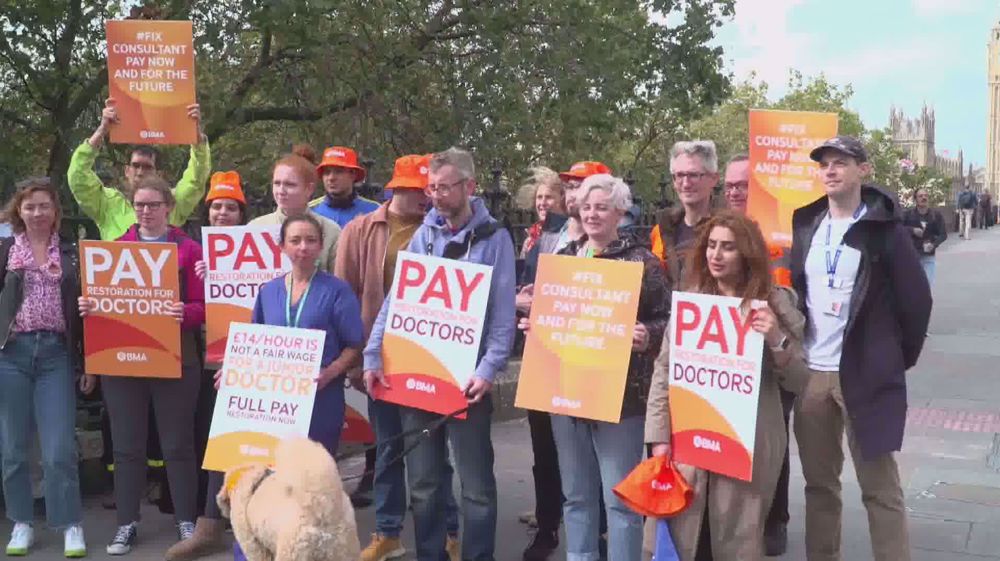






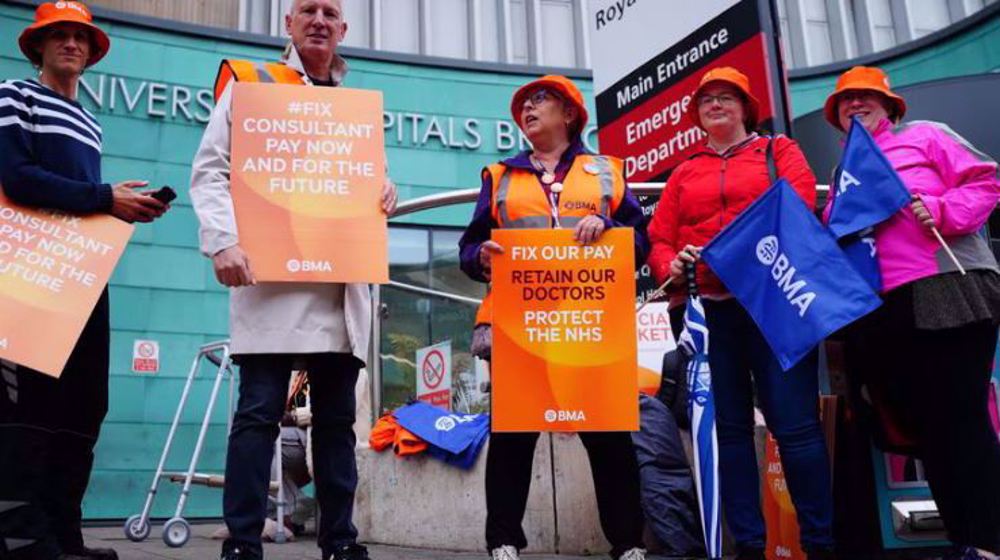
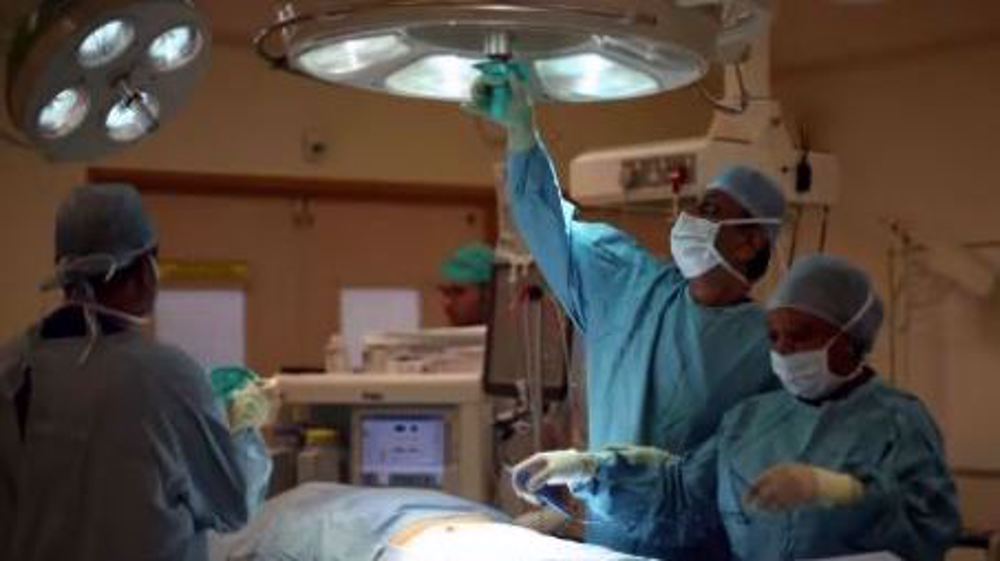
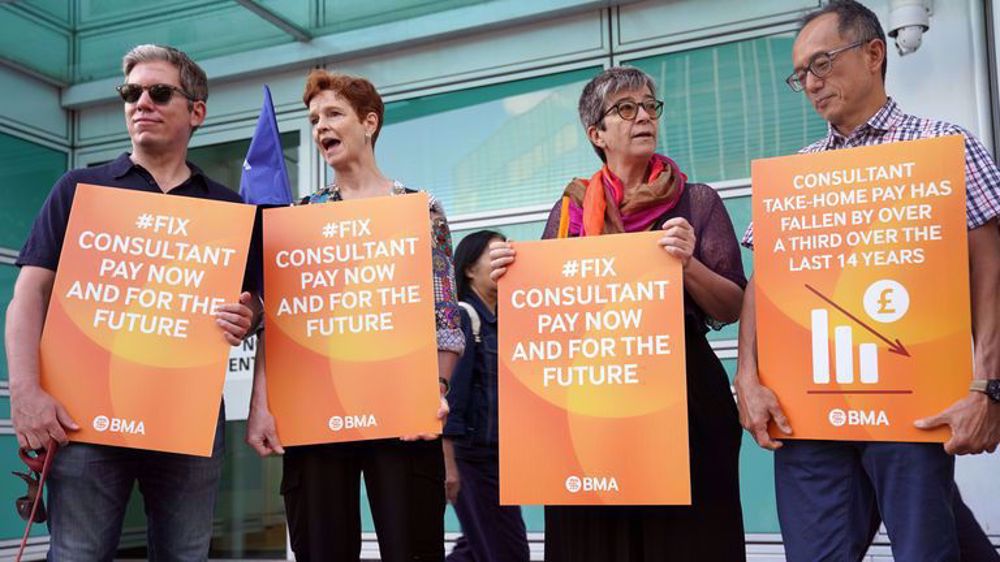

 This makes it easy to access the Press TV website
This makes it easy to access the Press TV website